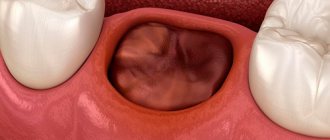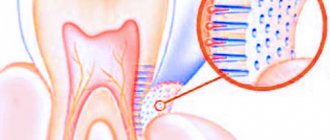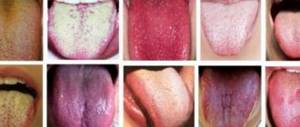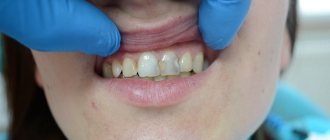How to eliminate the smell?
Eliminating a specific odor caused by a particular pathology is only possible by eliminating the internal problem. To do this, you need to consult a doctor who will prescribe a series of diagnostic procedures and appropriate treatment. But therapy, of course, will take time, which means that the smell will remain for some time. Therefore, it is important for patients to pay attention to the following tips on how to get rid of body odor:
- Maintain personal hygiene. You must shower at least 2 times a day;
- Use a high-quality antiperspirant;
- Treat the armpit area with a solution of hydrogen peroxide;
- Wear only clean, fresh clothes;
- Wear clothes primarily made from natural fabrics;
- Use perfumes with a fresh scent.
The following can help speed up the healing process:
- Maintaining proper nutrition. It should be as healthy and balanced as possible;
- Taking vitamin complexes. They help strengthen the body's defenses.
If you take timely measures and direct efforts to eliminate existing diseases, then within a few weeks, or maybe even days, the unpleasant body odor will disappear.
Why does my breath smell sweet?
Among the factors that cause a sweetish smell from the mouth, there are both relatively banal and serious reasons.
Diabetes
Diabetes is a disease that also has sweet breath among its symptoms. A diabetic's body is unable to properly break down glucose in the blood, resulting in fruit-like breath. In this case, you should visit a doctor as soon as possible, since this condition can lead to diabetic ketoacidosis or diabetic coma. Diabetes can also cause problem chemicals to accumulate in the urine and blood.
Nutrition
Diet is responsible for the unpleasant sweetish odor emanating from the mouth. Some very aromatic foods, such as spices, can be broken down into small particles, the bacteria from which enter the bloodstream and then into the lungs, which in turn affects a person's breathing. There is nothing wrong with the fact that you like aromatic products; they will not bring you the environment. But when consuming them, you should take more care of proper oral hygiene, and immediately after eating, before bacteria enter the blood.
Lack of saliva
Saliva helps cleanse the oral cavity and eliminate small particles that cause odors. If the salivary glands produce little saliva, it cannot remove harmful particles sufficiently. This can be easily felt in the morning because saliva production decreases at night. Chronic dry mouth or certain medical conditions can also cause problems with the salivary glands. But an insufficient amount of saliva is responsible only for eliminating bacteria; the smell itself is caused by food (see above). Therefore, it is important to provide the body with enough fluid.
Zinc deficiency
If a sweetish breath is accompanied by cracks in the corners of the lips, this may indicate a lack of zinc. This mineral strengthens the immune system and, in addition, neutralizes germs, kills bacteria in the mouth that can cause odor, and prevents their penetration into the blood. That's why zinc is found in many mouthwashes. It is also found in pumpkin seeds, meat, nuts, apricots, and grain sprouts.
Problems hidden in cavities
The problem with a sweetish odor can be located not only in the mouth, but also in another place (infection or chronic inflammation in the nose, sinuses, throat). These infections are caused by bacteria that produce odors that appear in the mouth.
Stomach ulcer
Helicobacter pylori is a bacterium present in the stomach of 40% of the population. It is associated with the development of stomach ulcers, but also with an unpleasant sweetish odor from the mouth. One study confirmed that removing these bacteria significantly reduced breath odor.
Skipping meals
Since eating food stimulates the production of saliva, it helps bacteria move further from the mouth, which helps reduce odor. A study conducted at the Dental Clinic of the University of Bern in Switzerland found that unpleasant odor in the people studied decreased 2.5 hours after eating. Therefore, regular nutrition is important for fresh breath. However, a sweet smell can also be caused by high protein intake.
Tonsil problems
The tonsils located in the throat are not smooth, they have indentations. If food or other substances get stuck in these indentations, it creates an environment in which bacteria that causes bad breath can thrive. The problem occurs when pieces of food deposited on the tonsils become hard. As a result, so-called almond stones. You can prevent their occurrence by gargling with salt water or an antibiotic solution.
Be careful with medications!
Some medications may also be associated with unpleasant, sweetish breath, most often because they dry out the oral mucosa. Such drugs include antidepressants, antihistamines, and antihypertensive drugs.
Other reasons
More serious causes include cancer or metabolic disorders. These seemingly unrelated diseases may smell the same due to the production of different chemicals. For example, in the case of esophageal reflux disease, undigested foods return to the esophagus along with gastric juices, which, in addition to heartburn, are also reflected by bad breath.
Possible complications
At first glance, the disease seems quite harmless and cannot lead to any adverse consequences. In fact, a vinegar smell may indicate a serious illness that needs urgent treatment. Possible complications include:
- Hypoglycemic coma : develops when there is a sharp drop in blood sugar. Diabetic patients should be aware of their disease and monitor their glucose levels to avoid such consequences.
- Formation of ulcers in the stomach and duodenum . This is a common complication of untreated gastritis.
- Gastroduodenitis, pancreatitis : occur with dysbacteriosis, when pathogenic microflora begins to spread throughout the gastrointestinal tract.
- Anemia . This complication is often observed in pathologies of the digestive system, when iron is not absorbed into the bloodstream in the proper amount. There is a drop in hemoglobin concentration.
- Cholelithiasis . It is observed when the gallbladder is not functioning properly, when stones form in it. They can interfere with normal bile drainage, which can lead to obstructive jaundice.
- Removal of a nerve or tooth . Such complications are observed in dental diseases. The patient ignores the symptoms, allowing pathogenic bacteria to multiply. The pathological process reaches the pulp and destroys the tooth.
How body odor is related to internal diseases
Each person has their own individual scent. But normally it should be very mild, almost neutral. This smell never causes concern; many do not feel it at all.
If suddenly the smell changes and begins to resemble a stench, and there are no visible reasons for this, then it’s time to pay attention to your health. This is a clear sign of existing pathological processes.
In order to understand why an unpleasant body odor appears, it is necessary to imagine that millions of representatives of natural flora live on human skin. In addition, dust and bacteria from the external environment settle on it every day. And it is these microorganisms that, in the process of contact with the secreted sweat, begin to emit one or another odor. Its character directly depends on the composition of sweat.
Associated symptoms
During the examination, the doctor must pay attention to other signs. This allows him to make the correct diagnosis. For example, if a patient has a slight bitterness in his mouth, or there is pain in the right hypochondrium, then this may indicate impaired functioning of the gallbladder. Or a person’s sour smell is complemented by food getting stuck between the teeth, pain, redness of the gums and buccal mucosa. This condition indicates dental problems.
When a person develops a vinegar smell against the background of pain in the epigastric region, a heavily coated tongue, and nausea, this indicates the development or exacerbation of gastritis. If the patient notices that an unpleasant odor is detected in the urine, the pathology may indicate diabetes mellitus.











